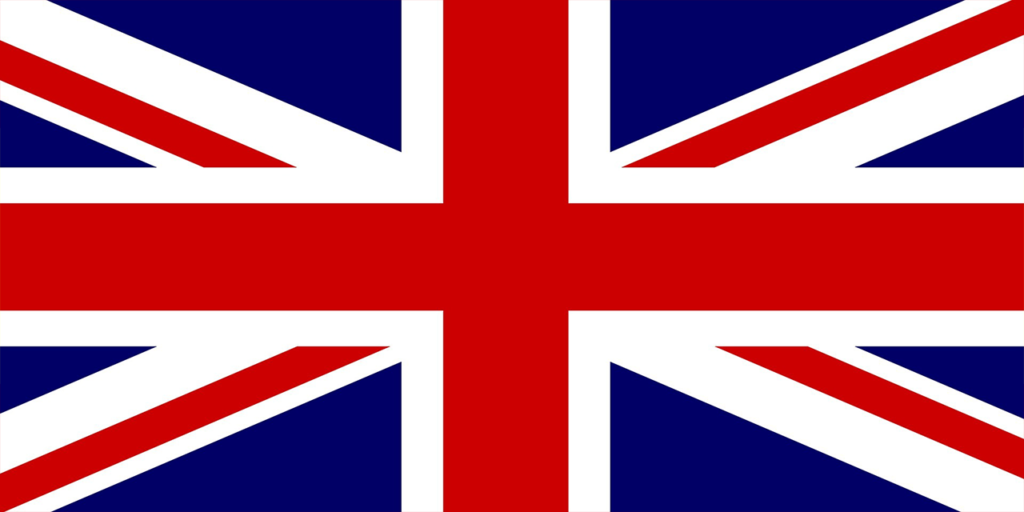
UK Gambling Commision
Table of contents
Gambling Regulations for Online Casinos in the UK
When it comes to online gambling, the United Kingdom is much more relaxed about the whole affair, particularly when compared to other countries. In fact, the U.K. has some of the best gambling authority commissions in the world, which oversee online casinos, sports betting, and horse racing.
If you live in the U.K. or one of its territories and want to know more about its gambling regulations, you've come to the right place. Here is everything you need to know.
A Brief History of Online Gambling in the U.K.
Ah, the 90s. What an extraordinary decade. Although the internet was still in its infancy, online casinos quickly popped up to allow gamblers to play from the comfort of their own homes. The real beginning of online gambling (not just in the U.K.) was with the passage of the Free Trade and Processing Zone Act in Antigua and Barbuda. This act allowed the island nation to establish itself as a free-trade nation, making it highly appealing to casinos who wanted a legal way to operate online.
It wasn't long before the U.K. joined the party when William Hill, the preeminent internet sportsbook, created its first website. Although Hill was quick to capitalize on this new frontier, other online casinos and betting sites didn't really kick into high gear until the early 2000s. One notable entrant was Betfair, which started online in 2000 and offered parimutuel betting between players.
The year 2005 was critical for U.K. online casinos and sportsbooks with the passage of the Gambling Act 2005, which was itself an update of the Gaming Act of 1968. While in-person casinos were well-regulated within the country, online betting houses had much less oversight.
The 2005 act created the U.K. Gambling Commission (UKGC), which still operates today. The law's goal was to prevent fraud, protect players, and develop best practices for all online casinos. Since then, the act has allowed casinos of all shapes and sizes (including brick and mortar versions) to expand their operations and marketing.
In fact, the industry became so widespread that there was pushback from the public as recently as 2017 that there were too many gambling ads on T.V. Many prominent casinos and sportsbooks committed to scaling back their advertising efforts because of it.
Here are some important dates that illustrate the history of gambling in the U.K., both online and otherwise.
- The Gaming Act of 1845 and the Betting Act of 1853 – These laws were passed in response to some high-profile lottery schemes, and they effectively banned gambling in the country.
- The Street Betting Act of 1906 – Underground gambling was a huge problem in the United Kingdom as players found ways around the previous laws. This act was designed to make gambling even more challenging, but it didn't really work.
- The Betting and Gaming Act of 1960 – This act decriminalized gambling in all forms, which led to something of a wild west of casinos and betting houses.
- The Gaming Act of 1968 – Since gambling was a free-for-all after the 1960 law, this act made the rules stricter so that there would be more oversight and authority.
- The Gambling Act of 2005 – This act created the U.K. Gambling Commission and expanded the previous law to make it easier to oversee online casinos and sportsbooks. While the law was passed in 2005, it didn't take full effect until 2007.
Is Online Gambling Legal in the United Kingdom?
Yes, it is. The U.K. is a unique country in that it provides explicit rules governing online betting sites and casinos. Many other countries have regulations that outlaw online gaming or parts of it. Those that haven't banned online casinos may not have any laws expressly permitting them, either. One way of looking at how online betting laws work is by labeling countries “white market,” “black market,” and “gray market.”
- White market countries are those where online gambling is legal and regulated, like the U.K.
- Black market countries have prohibited the practice, at least as far as operating an online casino. The U.S. is an example of a black-market nation.
- Gray market countries are those where online gambling isn't technically legal, but it's not illegal either. Canada has various laws related to gambling, but it would be considered a gray market.
Laws Related to Online Casinos UK
To better understand how the rules work in the United Kingdom, let's break down the country's various laws and gambling commissions.
As we mentioned, this one piece of legislation paved the way for online casinos and sportsbooks within the country. There were three primary goals of this act, including:
- Preventing gambling from being associated with criminal activity or disorder.
- Providing a safe and fair platform for both casino operators and players.
- Preventing the exploitation or harm of children and other vulnerable individuals (i.e., mentally-disabled, elderly) in relation to gambling.
To ensure that each of these goals is met, the act created the U.K. Gambling Authority. This authority issues licenses to online casinos and monitors their behavior for criminal activity, unfair practices, and potential exploitation. If a website fails to meet these standards, it will have its license revoked and will get shut down by the Commission.
While the Commission has direct oversight of online casinos and sportsbooks, it has a relatively limited scope for bankruptcy and financial hardship. If a casino doesn't have funds to pay its players, the Commission can't do much to step in and remedy the situation.
This scenario happened in 2013 with the betting site Canbet. At the time, the company was having money problems, which led to a wave of customer complaints about being owed money. The UKGC looked at what was going on but decided against revoking Canbet's license. They reasoned that doing so would guarantee that players would never receive back payments and that the company would be in even more dire straits.
Canbet eventually rescinded its license voluntarily in 2014, and the whole site shut down shortly after. Many customers were still owed money, but there was little that the UKGC could do to help them recoup their losses.
Gambling (Licensing and Advertising Bill) of 2014
Because sports betting is such a big industry in the U.K., the government decided to crack down on foreign entities advertising their options to U.K. residents. This bill introduced a point-of-consumption tax of 15 percent for all foreign and unlicensed betting houses and casinos. The other aspect of the bill was these foreign-based operators had to obtain a license with the UKGC to collect bets from local residents.
Overall, this change did create its intended effect, as many outside operators left the country. However, the UKGC does have a white list of entities that are exempt from this law, including:
- European Economic Area (EEA) Countries
- Alderney
- Antigua and Barbuda
- Gibraltar
- Isle of Man
- Tasmania
Most of these nations are part of the British Commonwealth or dependent on the crown, which is why they are treated differently than most other countries.
Gambling Authorities In and Around the United Kingdom
While the UKGC is the primary point of contact for casino operators in the country, the U.K. has various territories spread out across Europe. Some of these territories have their own regulatory commissions and are popular with operators because of low tax rates. Here is an overview of the different gaming regulators in and around the U.K.
U.K. Gambling Commission
This commission oversees all gambling at casinos, both online and in person. It is also in charge of lotteries, sports betting, and bingo games. The Commission issues licenses to all operators, both in-person and online. The UKGC looks at a company's financial situation, operating habits, and legal status before approving a permit. Currently, there are around 150 land-based casinos and over 1,000 online casinos licensed by the Commission.
Gibraltar Licensing Authority
Depending on whom you ask, Gibraltar is either part of the UK, Spain, or its own sovereign country. Both Britain and Spain lay claim to the territory, but it has its own parliament and government system. As it stands, Gibraltar is independent but falls under some U.K. jurisdiction, including the Gambling Act of 2005.
This area is highly popular with online casino operators, thanks to its one-percent tax and relatively loose licensing standards (at least, compared to the UKGC). More than online casinos are based here, and the Gibraltar Licensing Authority oversees them.
Because of Gibraltar's independent status, casinos based in the territory are still subject to the point of consumption tax. While these sites can advertise to U.K. residents, they still have to pay an extra 15 percent for transactions within the country. Currently, the Gibraltar Licensing Authority is suing the U.K. government to repeal the ruling.
Gambling Supervision Commission (Isle of Man)
As with Gibraltar, the Isle of Man is an independent nation that is technically part of the British Commonwealth, although not officially. Instead, it is considered a “British Crown Dependency.” This means that the island has its own government and laws but relies on the U.K. for economic assistance and governance. Realistically, the U.K. government has authority over the Isle of Man (and any other Crown Dependency) but allows the island to utilize its own legislative body.
As a result, the Isle of Man has an independent gambling commission that oversees online casinos. The Gambling Supervision Commission was founded in 1962 and expanded its operations in the 90s. While the Commission does have relatively lax rules and low tax rates, it does offer one critical protection for players. All online casino operators have to maintain separate accounts for operational costs and paying winnings. This rule ensures that no customer will lose money just because a casino operator has financial trouble. The Isle of Man doesn't want a repeat of the Canbet incident.
Alderney Gambling Control Commission
Alderney is part of the Channel Islands, which sit between the U.K. and France. As with the Isle of Man, Alderney is classified as a British Crown Dependency, along with the rest of its country, Guernsey. This commission was founded in 2000 and has made a name for itself around the world. Currently, it offers no restrictions on where online casinos can operate, and it collects zero taxes from these companies. Instead, it only charges an annual fee for operators.
Jersey Gambling Commission
Jersey is another part of the Channel Islands. This commission has only been around since 2010, so it doesn't yet have the same class and prestige as other authorities within the region. However, the JGC is trying to attract new online casinos with low taxes and favorable regulations. We'll see how well that strategy works, particularly when there are so many other options in the area.
Problem Gambling and Addiction in the U.K.
Recently, the U.K. Gambling Commission has tried to crack down on problems within the industry. For example, in April 2020, the government banned using credit cards for all online casinos and betting sites. The decision was based on the idea that it's too easy to borrow money to gamble, meaning that addicts can bet with impunity and just rack up insurmountable debt.
Another problem is the prevalence of underage gamblers. Players have to be 18 or older in the U.K., but a recent report showed that kids between 12 and 16 gamble online occasionally, if not regularly. To combat this issue, the Commission is enforcing better age verification systems for all licensed operators.
The country also has resources for those with gambling addiction. Here is a rundown of these options:
GamCare – This organization runs a national helpline (0808 8020 133) and offers classes and information on overcoming gambling addiction.
Gambler Anonymous: This global association has local meetings and counseling throughout the U.K.
Gamban: This software can ban gambling sites on any device, making it easier to avoid online gaming.
National Problem Gambling Clinic: The NHS runs this clinic in England and Wales, and it helps adults and underage gamblers get assistance. It is part of the larger National Centre for Behavioral Addictions.







